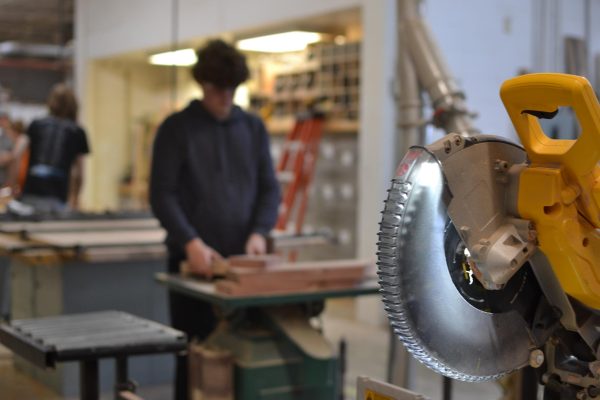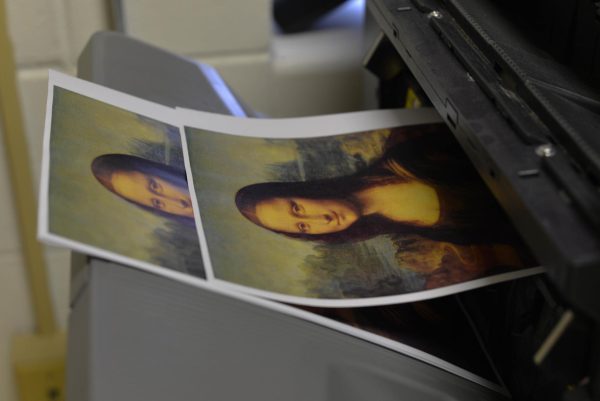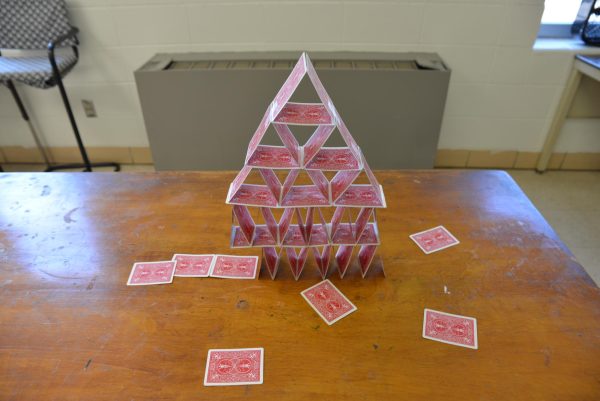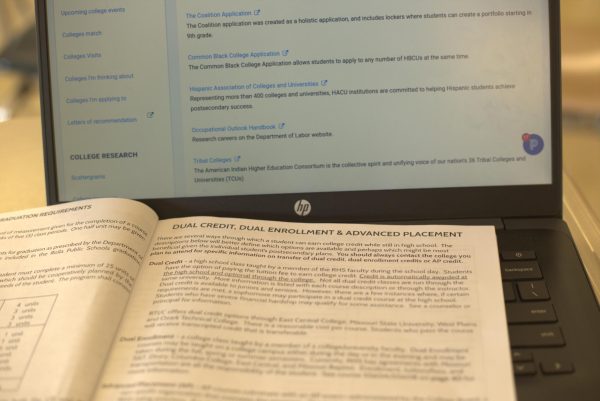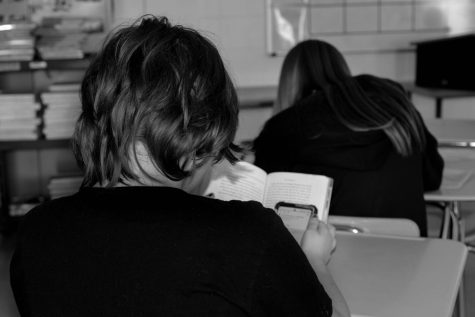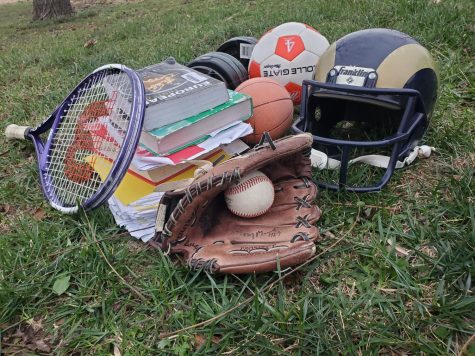Politial Arena: Does internet censorship protect us?
Rahel Pommerenke & Luke Walker debate the issue. The order of printing was determined by toss of a coin. Please be sure to read BOTH sides.
No! by Luke Walker
A free society is a great society. This freedom must not be limited, and must extend to the internet. The internet is necessary for the general populace to stay informed. It is even more important for young students, primarily high schoolers, to use to know what is going on. Since they will be living in a world that is shaped by events that are happening now, it is entirely necessary for them to stay up to date on world issues. In many cases of censorship, the school system decides to censor for various reasons. One of the main issues that schools are concerned about is social content that might be found offensive by some students and parents. We can not allow children to be hidden from the truth at such a young age and then expect them to figure it out themselves when they are older. On top of this, the first amendment should protect students from schools harmful overreach in “protecting” them. Internet censorship is something that is only put into place by schools that are too overprotective of students.
Many times school filters can be inefficient. They often will block many educational websites that are needed as sources. Youtube can be a very beneficial tool for learning. However, if you want to include a video in a powerpoint presentation, you can’t. Sure, YouTube has some potentially distracting videos, but I believe that the majority of high-school age students are mature enough to stick to videos that are simply educational. If not, teachers are there to steer kids back on the right path. Teachers are ultimately the ones who should make the decisions on whether or not a website should be accessed by kids. Some filters used by schools are designed to block sites that have a keyword within the site. These filters don’t look for context in which the word is used, it just simply looks for the word, and therefore is inefficient. Another downfall of internet filters is that email is blocked. High schoolers wouldn’t use inconvenient email to talk to each other. Having email unblocked would allow for students to email people about projects or email colleges. Email is another a tool for education rather than a distraction to students. Man should choose the sites that are blocked or not, not a machine.
School systems stress blocking sites that will cause students to waste time, but students rarely have time to waste on computers. Most of the time spent in computer labs is centered on educational websites. There isn’t much time for students to visit sites that would be found as distracting. Even if they were to venture to such sites, teachers could steer them back. Phones are more distracting than the internet and are more of a commonplace problem.
The internet is a very informative place. For students to utilize this information, there cannot be filters that block news and other information sites. These sites are crucial for kids to stay up-to-date on what is happening in the world. Perhaps the most important thing a high-schooler can do is to stay informed. Sometimes, students find themselves with free time and a computer. Students should use this time to research because “Knowledge is power. Information is liberating. Education is the premise of progress, in every society, in every family,” said Kofi Annan(quote courtesy of public domain). For students to achieve the best amount of knowledge, there must be an unrestricted internet in which students are able to access sites that benefit their education. If sites that are If these sites are blocked, students are losing a very important tool. Content that is for adults doesn’t have a place in schools, but any other website should have unrestricted access.
The internet has evolved since its founding in 1989. This doesn’t mean that rights on the internets need to change. Over restrictive censorship should not even be a option for schools. If a student or parent has a problem with certain content, it is easy to not navigate there. There are 644 million active websites according to Netcraft. This is a huge number of sites and gives students a vast array of different ones to choose from. Students should be able to access content that will benefit them in their education, which unfortunately, some filters block out.
Yes! By Rahel Pommerenke
Privacy, bullying, distractions, pornography, violence the list of inappropriate materials that can be found online goes on and on. All of these are the things that the government and local schools wish to protect their students from.
With the advances in computers that have been made over the last three decades, it is common for schools to have computers available to the students who range from the ages of five to nineteen. However, everyone under the age of seventeen is considered a minor, and not all content that is published is appropriate for minors to see. The wrong article, website or image can leave lasting effects on children. These are being already being avoided through the careful blocking and filtering of certain materials through school computers, and governmental measures have been taken to ensure a safe, non-distracting learning environment for students at school, and I thankful that my childhood wasn’t ruined by the many unnecessary pictures on the internet.
In 2000, the Children’s Internet Protection Act was created to prevent the distribution of private information about students like candy at Halloween. This includes schools blocking or filtering pictures that are obscene, considered child pornography or are harmful to minors. Every computer with internet access which is available to children must meet these guidelines, if not, who knows what could scar and distract the students next.
Not only does internet censorship create a safer environment for children online, but it also protects them when they are offline. It is frightening to imagine that the name and the address of a child in school could simply be floating around the cyber-net. Anything could happen if that information fell into the wrong hands.
In addition to protecting minors from the first three points declared in the CIPA, this heroic law requires that the school, “…must provide for educating minors about appropriate online behavior, including interacting with other individuals on social networking websites and in chat rooms, and cyberbullying awareness and response,” the Federal Communications Commission states on their website.
I see the internet as a jungle full of contrasting sources of information: the trees forming canopies of facts, figures, names, places; information raining down from the clouds; the ground, the people, soaking all of it up. I know that last time I sent a silly snapchat to my friends, one of them screenshot it and shared it with our other friends. Pretty much everything on the internet can be made public. Although it didn’t offend me, I was still surprised to see how fast it traveled. Be aware of what is posted on the internet, because these things can lead to weeks of embarrassment and harassment. Believe it or not, private messages between friends could end up on the phones of ten other people. Knowing how to protect yourself on the internet is aided by the efforts that schools make. This is why applications such as facebook, snapchat, twitter and more are blocked on school wifis; they are distractions to the learning process. I believe that there is no need for the school to encourage the use of these forms of social media by allowing access to them through the school’s network.
Many schools adopt programs such as Bess and Surfcontrol’s Surfcontrol to help them block and filter information online. Of course, there are loopholes in almost every system, so inappropriate media still seeps through. To protect the students, these systems are still being tweaked to protect users.





